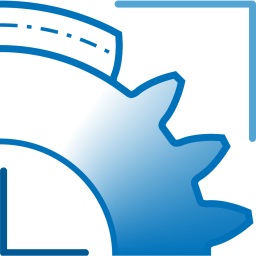Interview with Prof. Zavadlav
Reisswolf: How did you find your way to the TUM?
Prof. Zavadlav: Before I joined TUM I was working at ETH Zurich with Prof. Koumoutsakos. He was the first to mention that there was an open position at TUM. Given that TUM is one of the top universities in Europe I found the position to be a possible great next step in my scientific career. After that, it was smooth sailing. I applied, came for the interview, was selected and appointed.
Reisswolf: What have so far been the most exiting research topics you worked on and what is planned in the future?
Prof. Zavadlav: My scientific research was so far directed at the basic sciences and in particular at the development of new methods and models for efficient simulations of complex phenomena. I was most excited to work on projects where we developed new simulation techniques that enabled simulations that nobody in the whole wide world did before. In the future, I am looking forward to expanding my expertise to new research areas and in particular to establish new collaborations with research groups at TUM and abroad. In this respect, I am very happy that the professors in our department are very welcoming and many of them had already shown interest in collaborating with me and my group. I am excited to see what will come out of these collaborations.
machine learning is progressively infiltrating all areas of research and, therefore, also mechanical engineering
Reisswolf: Your chair will be – as much as we know – the first one to offer a general machine learning lecture at the mechanical engineering faculty. How essentially is it for future engineers to have knowledge in this field?
Prof. Zavadlav: We will not be the only ones to offer a general machine learning course to engineering students, there is talk of more courses coming. The reason being that machine learning is progressively infiltrating all areas of research and, therefore, also mechanical engineering. It offers a great opportunity for further innovation and will likely reshape the traditional way of engineering. Thus, it is beneficial for future engineers to at least get accounted with the field and learn where machine learning can be helpful. Given the hype around machine learning, it is perhaps even more important to be aware that machine learning algorithms are not magic wands and have many difficulties of their own.
Reisswolf: Can you describe the idea behind the term of “physics informed deep learning”? I guess you mean physics-informed machine learning?
Prof. Zavadlav: Since there were previously not many courses focused on machine learning, our idea was that a course in this area should be interesting and offer something new to the engineering students. The “physics-informed” part of the title encodes our approach to the general machine learning field and the applications that an engineering student might encounter. Suppose, you would like to use machine learning to predict some complex fluid flow. The concept of momentum conservation, while obvious to us, is not at all obvious to a machine learning algorithm. When we incorporate such physical laws into the algorithms we speak of physics-informed machine learning.
Reisswolf: How much programming skills are needed for the courses offered?
Prof. Zavadlav: While one can learn about the theoretical aspect of machine learning algorithms, for engineers, this knowledge only becomes truly powerful when one knows how to apply them. Since we cannot apply them to real-life problems without computers some basic programming becomes unavoidable. However, most of the programming is on a high-level. To give an example. To invert a matrix A in MATLAB you will probably run a command inv(A) rather than write every line of LU decomposition. In the same way, machine learning algorithms have been implemented into many open source libraries such as Scikit-learn, PyTorch, TensorFlow, etc., and one needs to get familiar with their use rather than code everything from scratch.
Reisswolf: Are your lectures mainly planned for engineering students or others as well?
Prof. Zavadlav: The lectures are definitely suitable also for other students. For the first year, we have decided to offer them only to mechanical engineering students. However, we will probably expand in the following years. For example, the students of MSE have shown a great interest in our courses and we will try to offer the courses also to them.
my goals are to teach well, to improve my managing skills and last but not least, to improve my German.
Reisswolf: What are your personal goals regarding your work at the TUM?
Prof. Zavadlav: Apart from striving for excellence in research, my goals are to teach well, to improve my managing skills as to not be too harsh but also not too soft with my employees and last but not least, to improve my German.
Reisswolf: Besides your research, what other interests do you have?
Prof. Zavadlav: I enjoy every type of “do it yourself” kind of project. Pinterest serves to me as a constant flow of things to try out ranging from woodworking to cocktail making, gardening, and art.
Reisswolf: Thank you for your time and all the best for your upcoming lectures and research at the TUM.
From 02/2020 by Josua Höfgen

General Information about Professorship of Multiscale Modeling of Fluid Materials
Number of employees: 1 Secretary and 2 PhD students
Offered courses: Physics of Fluids (5 ECTS course, MSc, WS), Physics-Informed Machine Learning (5 ECTS course, MSc, SS), Hands-on Deep Learning (4 ECTS Praktikum, MSc, SS)
Possible excursions / seminars: Currently we do not offer any excursions. At some point we might offer an advanced seminar on the topic of multiscale modelling.
Contact person for theses: Any permanent member of the group.
Location in the faculty building: Building 1, 2nd floor





It’s laborious to seek out knowledgeable folks on this matter, but you sound like you recognize what you’re speaking about! Thanks